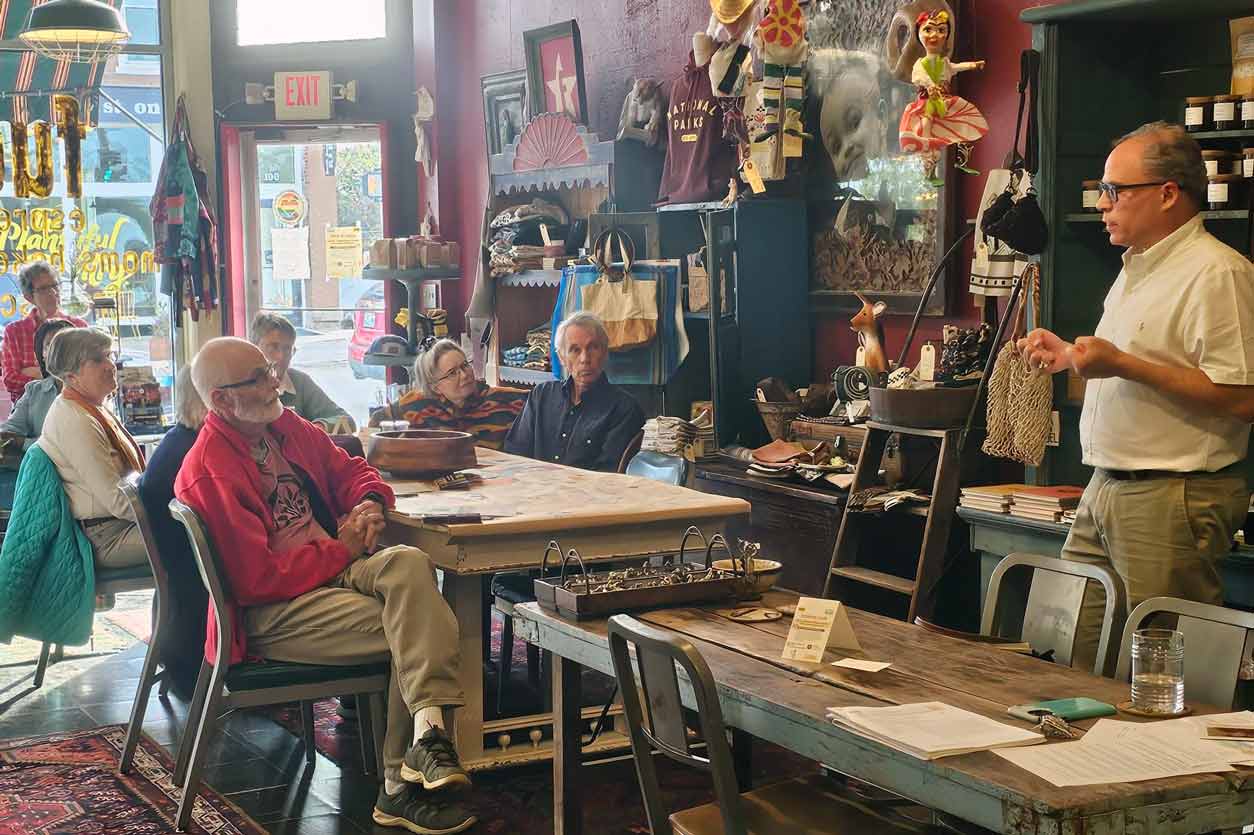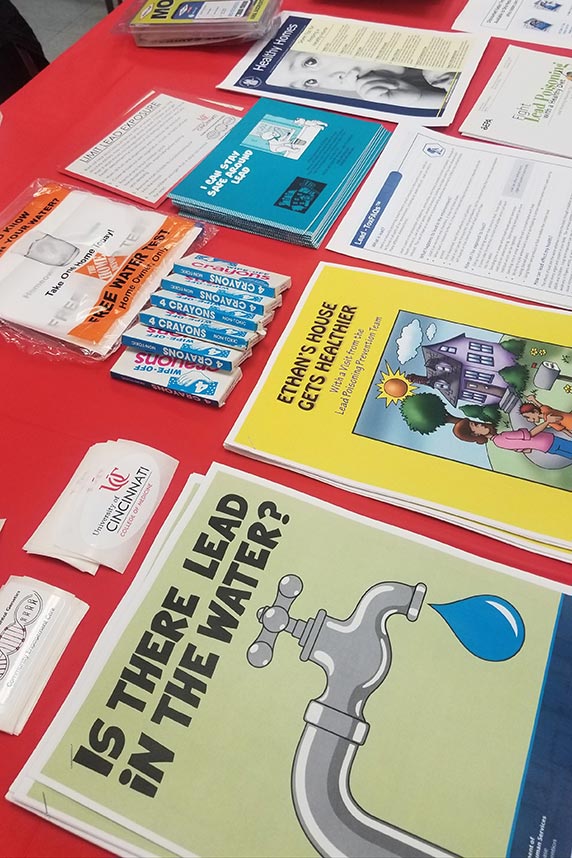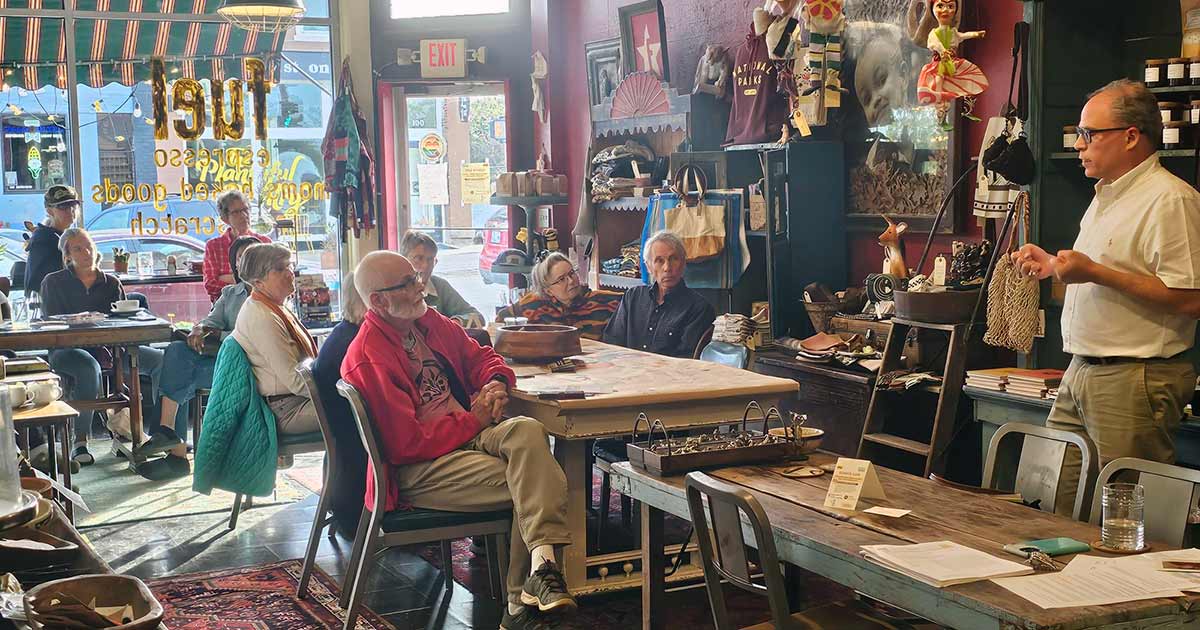Science cafes are exactly what the name implies: casual events where scientists and the public mingle and talk about science. Of course, the former do most of the talking with the latter by asking questions. But in the more than 25 years since the first science cafes were held in France and the UK, these events have grown in popularity around the world.
The purpose of a science café is to provide an opportunity for the public and scientists to interact in a relaxed environment to make science more accessible. The adult audience is usually the target, although science cafes for teenagers have also appeared in recent years.
Although science cafes come in all shapes and sizes, the basic structure involves a short talk by a recognized expert followed by a question-and-answer (Q&A) session.
Speakers are usually recruited from universities or local industry, but discussion topics are usually requested by the local community. In addition to cafes, venues can include bars or restaurants to libraries, bookstores, museums and even cinemas. Admission is usually free.
Three science cafes have been established by the NIEHS-funded Basic Environmental Health Sciences Centers at the University of Arizona, the University of Cincinnati, and the University of Iowa.

“Science cafes serve as a valuable point of connection between Environmental Health Science Core Centers and the communities they serve,” said Claudia Thompson, Ph.D., chief of the NIEHS Population Health Branch.
She added that such community engagement approaches strengthen and foster dialogue between community partners and center members. Although these cafes serve to translate and share the results of the center’s research into information that community members, decision makers, public health professionals, and educators can use to protect and improve public health, they are also critical that the center’s members understand what issues are of concern to communities. .
University of Arizona
Paloma Beamer, Ph.D., directs the Community Engagement Core (CEC) that runs the science café program for the NIEHS-funded Southwestern Environmental Health Sciences Center (SWEHSC) at the University of Arizona.
SWEHSC has used science cafes, held throughout Southern Arizona, to make environmental health curricula and lessons available to teachers, health care providers, community members and students.
“We choose topics based on feedback from community outreach efforts,” said Mayra Vargas, a CEC member. “Ensuring that topics are timely and relevant to community interests is key to the success of the series.”
To learn more tips for success in creating a science cafe, see the sidebar.
University of Cincinnati
Michelle Burbage, Ph.D., co-directs the NIEHS-funded community engagement core at the University of Cincinnati’s Center for Environmental Genetics, which hosts Environmental Health Science Cafes (EHSCs).
Like most programs, they prefer accessible public places, such as libraries and bars, and afternoon or evening hours.
Topics have included lead in the home, uranium exposure, mold, water pollution, air pollution and even a coffee shop showing the movie “Dark Waters” to answer questions about the health effects of PFOA exposure.

“Communities can propose a topic through our website or our Stakeholder Advisory Board (SAB),” said Burbage. SABs identify local environmental health concerns and mechanisms to provide education and outreach.
“It’s a great way to educate the public as well as learn about their environmental health concerns,” she said. “We want our researchers to better understand what communities are really concerned about.”
Assessments are key, she added. “This can sometimes be overlooked,” she said, “but evaluations provide insight into the effectiveness of EHSCs and increase public confidence in environmental health science.”
University of Iowa
The University of Iowa (UI) Basic Environmental Health Sciences Center created its first science café in 2013, working with the Institute for Clinical and Translational Sciences. CEC Director Brandi Janssen, Ph.D., and CEC Program Coordinator Jackie Curnick even co-authored a paper about their experience.
The UI Core Center hosts science cafés at the Fuel Café in the small town of Mount Vernon. The presenters are often scientists from the UI Central Center, and issues related to agriculture are often presented, reflecting the agricultural economy of the area.
Researchers are limited to a 20-minute presentation without slides, followed by audience questions and answers, according to Curnick.
Janssen and Curnick also tracked how people shared what they learned. They found that information from a science cafe on water quality came up later during an environmental health needs assessment focus group the following month, where one participant shared a story she learned from friends who attended the science cafe.
To learn more about the UI Science Cafe, visit this website.
citations:
Jansen B, Curnick J. 2022, Evaluating knowledge transfer following a science café: a qualitative approach for rural settings. Sci Educ Civ Engagem 14(1):64-76.
Nielsen KH, Balling G, Hope T, Nakamura M. 2015. Sipping Science: the interpretive flexibility of science cafes in Denmark and Japan. East Asia Sci Technol Soc 9(1):1-21.
(John Yewell is a contract writer for the NIEHS Office of Communications and Public Liaison.)
